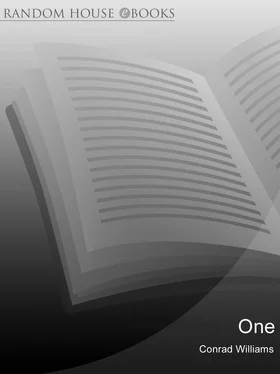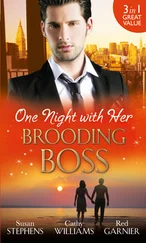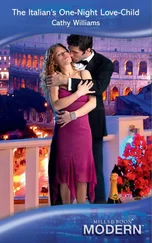Jane liked that about her, that ability to rescue them from a downturn in mood with a quip. It wasn't the only thing. Cherry was like no other woman he had met. She didn't have a ramrod-straight back and skin so glossy and flawless you could have played curling on it. Her hair wasn't advert soft, thick and tangle-free. She didn't have a hundred pairs of shoes or spend two hours in the bathroom getting ready for a pub lunch. She didn't consider a small green undressed side salad to be a substantial meal. He liked the way she moved during lovemaking, flipping him onto his back, climbing him, pressing fully against him, a steepening of herself to match the growth of her own pleasure.
'What would you do?' she asked. 'If this was our last night? If a meteor were to hit, or the Earth split in two, or a star exploded and drenched us in fire?'
'Burn my pants and take a shower.'
'But seriously?'
'If we survived? I'd shoot you. And then I'd shoot myself. There would be no way forward.'
After that night things changed. There was a soberness. It wasn't as if they didn't have fun or failed to enjoy themselves, but later in their holiday, canoeing in the Bristol Channel or scrambling in Llantwit Major did not inspire the excitement it ought to have done. There seemed a check on their behaviour, as if screaming or laughing in the wake of what they had witnessed would somehow be disrespectful. The enormity of what lay beyond the Earth's meagre pull, the knowledge that they had been staring at stars long dead before the Earth had cooled, humbled them both. Jane wondered if that night had damned them in some way. Instead of opening themselves to the beauty of it, they had taken a left turn and talked about the blanket lifelessness in space and time, other than on this speck of blue-green dust.
They returned home and two weeks later Cherry told him she was pregnant.
The wind around him, harsh and frantic, as if trying to get inside him. The sea a black wall. He remembered a magazine he'd started collecting, years before – he must have been thirteen, into fighter jets and blood – about the Argentine invasion of the Falkland Islands, and the British campaign to get them back. It was one of those magazines whose introductory price was remarkably low, but then reverted to a couple of pounds and went on interminably; he never followed the run through to the finish.
The Marines and the Paras covered more than fifty miles of inhospitable land by foot in bad weather in three days, carrying full pack. 'Marching' didn't do it justice; 'yomping' was more like it.
Treat this as an act of liberation , Jane told himself. This is not about you. The miles will go easier if you keep your mind on Stanley. You can tell him about yomping when you see him. You can tell him about Goose Green and the Paras, and his namesake port where the final battle took place. He'll love that.
Stanley had begun to be fascinated by death. But he didn't see it as a permanent thing. Playing with his Star Wars characters, he would 'dead' somebody and after a while they would come back to life. But it was obviously in his thoughts. They went to Brittany for a holiday – their last as a family – exploring the coast of rose-coloured granite, and Stanley had come right out and asked him, 'What means die? What means dead?' Stanley and Cherry had decided on a policy early on, not to lie, not to dress things up, and so Jane had told him exactly what it meant. 'It means you stop breathing, your heart stops beating. Your brain stops thinking. And it's like that for ever. You never come back from it.'
Stanley had digested this, his eyes wide and fixed on the
middle distance as they were whenever he thought hard about things, and said: 'Will I die?'
'Everyone dies, mate.'
'Oh,' Stanley said, and his eyes turned glassy with tears. 'Will you die?'
Jane nodded.
'Before me?'
Jane had almost said I hope so but thought that would confuse him. 'Yes, Stan.'
'Oh, Dad. I don't want to die. I don't want you to die.'
'I don't want to either. But don't worry. It won't be for a long, long time.'
Stanley had become a little more clingy than usual after that. He woke up in the night and called for him and he would go, sensing Cherry stiffen beside him. 'I luff you with all my heart, Dad. I luff you for a five hundred million hundred three minutes.'
Cherry seemed to resent the attention Stanley was giving Jane. And he was at a loss to explain why his son was favouring him. 'It's just a phase,' he suggested. 'A male thing. It doesn't mean he loves you any less just because he doesn't tell you. Boys can be awkward sods.'
Cherry rejected this. She claimed Jane was encouraging Stanley's ambivalence, using it as a wedge between him and his mother. Jane had been shocked. 'Why would I do that? Why would I want to turn Stanley against you?'
'Because you want custody of him.'
He remembered the impact of that, how it had floored him, numbed his tongue. She had that ability, to throw something into an argument that was unexpected, that didn't follow the fight's trajectory or logic. How had he responded? He could barely recall it in the wake of her face twisting, the demand that blasted out of her. He must have said something like 'But I don't want a divorce.'
No, but I do, Richard. I do .
The compression of distance through the binoculars was difficult to cope with. It disorientated him sometimes when he saw some flash of difference in the brown reaches of burnt land and removed the glasses to check its position in relation to him to discover that he couldn't see it. Then he didn't know where to aim the binoculars in order to find it again. Once he had it back in his sights he was more careful, and discovered that it was much farther away than he had believed. He had never used such powerful lenses before: all the binoculars he had ever tried previously had been weak; toys, really.
In the main, these flashes he saw were tangles of fleece snagged on barbed wire, or fragments of plastic, or on one occasion a bottle-green sequined dress stuck against a fence post, arms waving hysterically in the wind. Every sighting caused a palpitation in his heart. He desperately wanted it to be someone, but he didn't know what that might mean. If this was some kind of assault from an aggressive country, there was every chance that an invasion was under way. He didn't want to be clapped in irons and sent to a concentration camp, or shot dead on the spot. He also didn't want to be hampered by an injured companion, or have to tend to someone who might be slowly choking to death on their own lungs.
He walked. He was back on the A1 now, the tarmac swollen and broken, melted and resealed in strange lava patterns. It reminded him of a river's currents frozen in a snapshot. He stopped thinking about the binoculars and the possibility of survivors for a while and ate up some ground. His boots were comfortable; no blisters yet. He felt stronger. He ate little and often. He had filled a three-pint water bladder from bottles in the cellar of buildings just south of Scremerston and stowed them in the water pouch of his rucksack. It was a heavy pack now, but he kept reminding himself of the troops yomping from Carlos Water to Teal on East Falkland. They never gave up, and there was death waiting for some of them at the end of it all.
There were countless fields on either side of the dual carriageway. The haze made all that acreage of black-brown tremble. There were sections of the road that had not been barred by vehicles, but there was a surprising amount of traffic. He averted his head when he walked by, but something wasn't making sense. He snorted a little, mildly amazed that he could think like this in the middle of an entire situation that wasn't making sense.
Читать дальше












